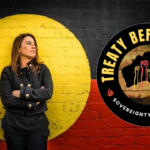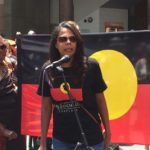Albanese Votes Down Thorpe’s Post Referendum Indigenous Rights Advancing Bill
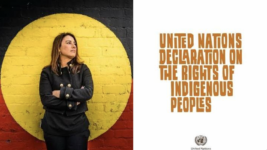
Prior to the election of the Albanese government in May 2022, which subsequently led to the failed Voice referendum of October 2023, Senator Lidia Thorpe introduced legislation into federal parliament that aimed at upholding the rights of First Peoples across all Australian law.
The national vote two months ago sought to establish an Indigenous body that would advise parliament but hold no veto power, via an act of constitutional recognition, and this saw the majority of the constituency vote it down, with around 97 percent of voters being non-Indigenous.
A Gunnai Gunditjmara and Djab Wurrung woman, Thorpe and the Blak Sovereign Movement opposed the Voice proposal due to its lack of any real power. Yet, the understanding is that much of white Australia voted against it due to misinformation and fears around it being all too powerful.
Robust in its application, Thorpe’s bill proposed to reflect the decades-in-the-drafting UN Declaration on the Rights of Indigenous Peoples (UNDRIP) in the nation’s law: a process that doesn’t create new rights, but rather upholds those of First Peoples in a system that previously denied them.
But the Albanese government, which was supposedly championing Indigenous rights-advancement with its referendum, has now, in bipartisan move, voted against Thorpe’s UNDRIP bill, in contrast to a similar move in Canada that seeks to produce practical outcomes rather than pleas for change.
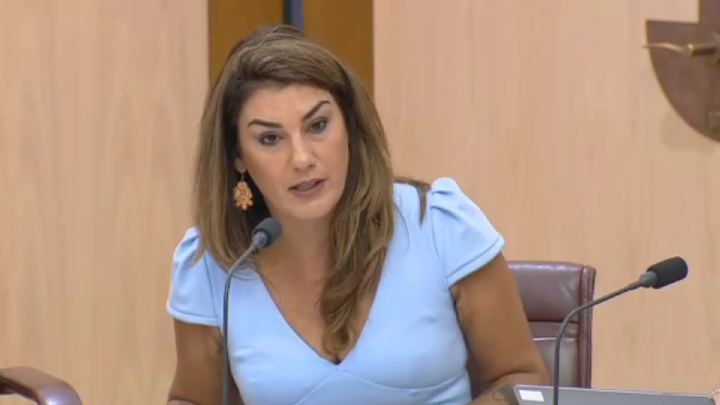
No rights since the boats arrived
“Well, it is another day in the colony. This is Australia, everybody,” said Thorpe, as her bill went up for the Senate vote on 6 December. “This is a government – the so-called progressive Labor government – that waves the Aboriginal flag, wears the Aboriginal earrings and says it’s our friend.”
“Yet it denies the rights of Indigenous people in this country,” the senator continued. “To vote down the United Nations Declaration on the Rights of Indigenous People is an absolute disgrace.”
First introduced in March 2022 and then restored in July after the May election, the United Nations Declaration on the Rights of Indigenous Peoples Bill 2022, creates a standalone Act that requires the PM to produce and roll out “an action plan to achieve the objectives” of the UNDRIP in local law.
The bill maintains this plan must be developed in consultation with First Nations peoples and the Australian Human Rights Commission, and the measures applied must address racism, discrimination and combat prejudice, as well as advance mutual understanding and promote good relations.
“We survived the massacres, the murders, the rapes, and I’m living proof of that. And I’m so glad I’ve got five years left in this place because I’m going to make your job hell for the next five years,” Thorpe made clear. “I will not stop until we get justice in this country for First People.”
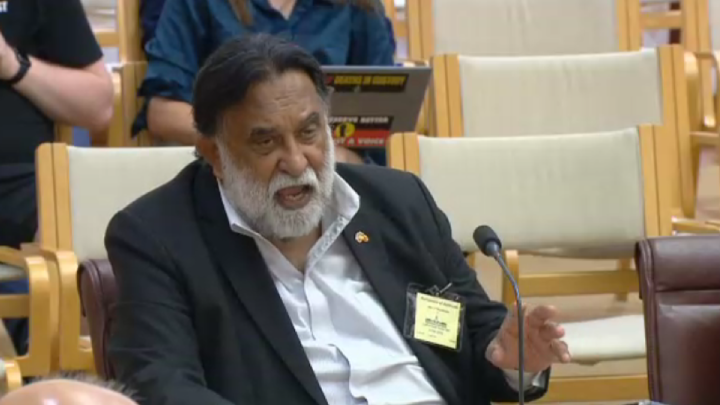
“Rights recidivism”
Wednesday’s vote saw 10 senators support Thorpe’s bill, which included the Greens and Senator David Pocock, with 27 voting against it. Following the expected bipartisan rejection of the bill, Senator Thorpe then held a roundtable at Parliament House to address this further rights denial.
Former UN Permanent Forum on Indigenous Issues expert member Les Malezer spoke first. He recalled that the campaign to uphold the rights of Indigenous people began in 1923, when North American Chief Deskaheh called on the League of Nations to recognise the Haudenosaunee nation.
The Gubbi Gubbi and Butchulla man outlined that from there, a number of delegations occurred in respect to calling for the recognition of Indigenous human rights, which included Aboriginal and Torres Strait Islander representations to the king and the government.
“Fortunately, because of the charter of the UN… the rights of peoples to self-determination has become a principle of rights in the world,” Malezer added. “It’s that principle that Indigenous peoples have gained identity by the United Nations and that has been captured in the” UNDRIP.
Malezer spent decades negotiating the draft of the UNDRIP with colleagues. And he explained that the document doesn’t create any new rights, but rather serves to uphold the universal human rights of Indigenous peoples, as the processes that came before the declaration had failed to do so.
The ex-UN expert outlined that in 2006 the draft declaration was presented, and the leading state coordinating the negotiations, Canada, then withdrew its support for it, which was due to then Australian PM John Howard flying to that country and advising its leader to reject the proposal.
Indeed, when the UNDRIP was put to the UN General Assembly in September 2007, 144 state parties voted in favour of its adoption. However, four settler colonial nations voted against the rights declaration, which included Australia, New Zealand, Canada and the United States.
“So, let’s not be fooled in Australia. We’ve seen what happened with the referendum. Let’s wake up to the fact that we are dealing with a parliament that is entrenched,” Malezer said in finishing up.
“It is calling upon the parliament to respect Indigenous peoples”.
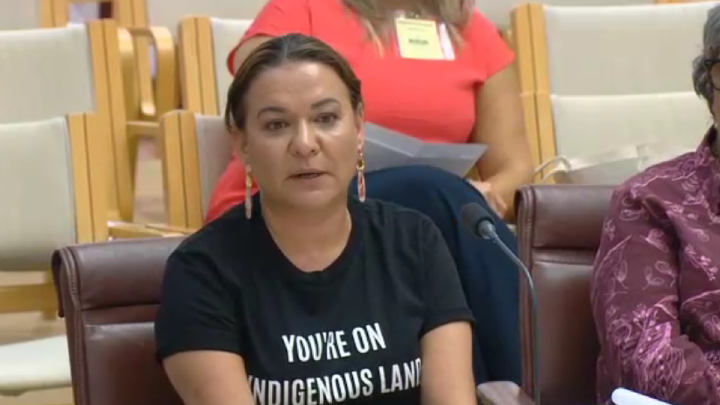
To be independent
“Australia is especially violent when compared amongst the other English-speaking settler colonies,” Professor Chelsea Watego, author of Another Day in the Colony, told the UNDRIP roundtable on Wednesday.
“We are familiar with terra nullius. We were deemed so subhuman that we lacked any Indigenous political sovereignty,” she continued. “And while we had the Mabo decision, that idea that our Indigenous political sovereignty not be recognised still remains firmly intact as we saw today.”
According to the Mununjali Yugambeh and South Sea Islander professor, “violence is enacted” against First Peoples via all Australian institutions, the UNDRIP held opportunity for a way forward, and the current “needs-based approach” taken to First Nations affairs restricts self-determination.
This rights-denying system, Watego explains, results in local First Peoples remaining the most incarcerated people on the planet, and she emphasises that “the evidence base is clear here that the state is insisting on perpetrating violence on Indigenous peoples despite what they see”.
The inquiry into Thorpe’s UNDRIP bill tabled its report last month. And while its recommendations are positive in terms of its consideration of the value of the declaration articles and the national plan, the committee members fell short of recommending UNDRIP implementation outright.
“Over the last two decades, for a plethora of reasons” the focus has shifted from “the inherent rights” and “exclusive status of First Nations peoples that comprises unceded sovereignty”, said journalist Ben Abbatangelo.
“I’ve been thinking about the words that follow such a contemptuous no… and the words that follow it, after much thought, are the same words that preceded it, and that is why we are here today,” the Gunaikurnai and Wotjobaluk writer continued, “it’s rights-based justice.”
“To ensure that from here onwards, just as it was before the movement was hollowed out and hijacked, that we anchor ourselves and our communities in our inherent rights and our exclusive status as First Nations people,” he ended.
“In the right to be self-determining, autonomous, independent.”


